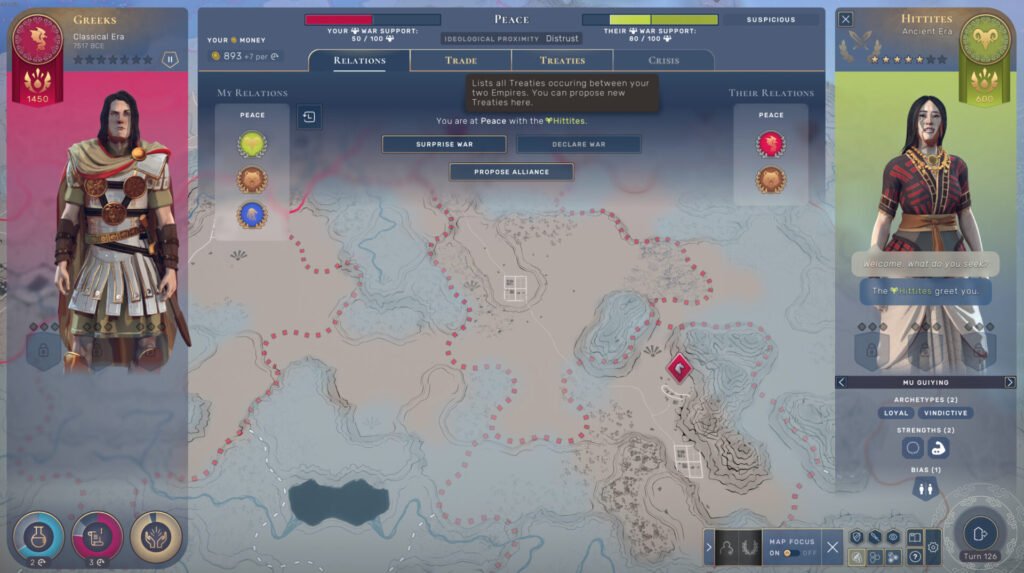I have been looking forward to playing Humankind. After my first week of playing, am I pleased or feeling disappointed, or maybe even somewhere between these two extremes. Find out by reading my Humankind review.
What is Humankind?
Humankind is a turn-based historical strategy game. It is a game of exploration, expansion, exploitation and potentially extermination. It appeared to be an exciting alternative to the Civilization series of games that I have been playing since the early 1990s when I played Civilization on my Amiga, which is why I decided to preorder it several months ago.
How is Humankind different to Civilization?
With Civilization, you select the Civilization you will be playing throughout the game. You can settle a city on the game very first turn. You can win the game in a few ways.
In contrast, you start Humankind leading one of several late neanderthal tribes given no names. Your tribe isn’t yet advanced enough to settle a city. Your tribe must hunt, gather and check out places of interest to earn an era star. Once your tribe has earned an era star, it can advance to the ancient era and build its first city. You will also pick the first culture your civilisation will adopt. Several cultures are available to choose from on a first-come basis. You then earn more era stars to advance to the next era when you will be able to select a new culture for that era. Or, if you want, you can keep your existing culture.
Humankind, unlike Civilization, has only one way to win a game. You can only win by leading the Civilization with the most fame. Humankind awards fame in several ways, including.
- Winning of era stars
- building world wonders
- discovering key technologies such as reading
Humankind gamplay.
In my experience, Humankind will take some time to get used to, even if you have some experience playing similar games such as Civilization.
I find Diplomacy interesting it strikes me as a hybrid of Civilization VI and Europa Universalis IV diplomacy due to Humankind war mechanics. Humankind war mechanics revolve around the concept of a civilisation war desire. When a civilisation war desire reaches a certain level, it can declare war. The war will continue until one of the sides war desire falls below a certain threshold, forcing a peace settlement on the loser.

It is possible to ignore the war mechanics by declaring a surprise war. Of course, if the war goes badly, it could finish very quickly and badly for your Civilisation.
In one of the games I played. The Goths declared war on my Civilisation, Rome. After many border skirmishes between the two. The Goths were forced to surrender after Rome had conquered a city.
Unfortunately for Rome, I was too greedy, took land I couldn’t defend and ended up in a war I couldn’t win against the Hun.
Unlike Civilization, you can stack a specific number of units together to forms armies. The number of units each army can have is capped. This cap will increase during the game.
A tactical view is displayed during combat, and you can place your troops where you want within your area of control in the tactical map. The battle is then split into a number of turns until the battle ends.
I was impressed during that game how well the Huns timed the start of their hostilities with my culture. I was disappointed to discover that the Hun horse archers seemed to be overpowered. As they easily defeated my balanced army, including spearman.
